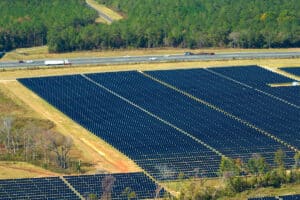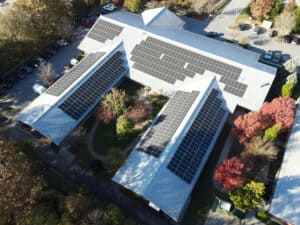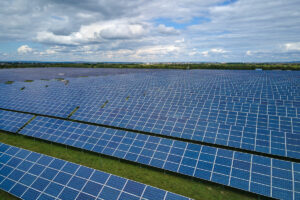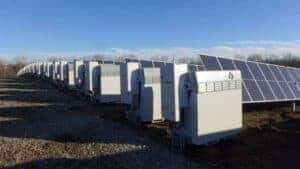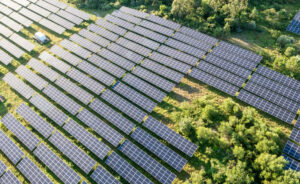In recent years, the use of artificial intelligence (AI) technology has revolutionized various industries, including the commercial solar sector. AI offers advanced capabilities that enable more efficient solar energy production, improved maintenance, and enhanced overall performance. This article explores the numerous applications of artificial intelligence tech for commercial solar, highlighting its potential benefits and the ways it can contribute to a sustainable and greener future.
AI-enabled predictive analytics
Commercial solar projects can implement AI technologies to assist in forecasting and analyzing solar system performance. Artificial intelligence technologies can analyze vast amounts of environmental data, enabling accurate forecasting and real-time adjustments to current conditions. This improves planning, storage, and operational efficiency, reducing power waste, shutdowns, equipment malfunctions, and damage. These technologies also optimize performance and maintenance schedules based on solar conditions, environmental data, and maintenance records.
AI-driven energy forecasting: Accurate energy forecasting is crucial for commercial solar installations to optimize energy production and manage grid integration effectively. AI algorithms can process vast amounts of historical data, weather patterns, and other relevant variables to provide precise energy forecasts. These forecasts help businesses make informed decisions regarding energy storage, grid management, and electricity trading, ultimately leading to cost savings and improved operational efficiency.
Enhancing maintenance and performance with AI: The performance and maintenance of solar panels are vital factors that impact the overall efficiency of commercial solar installations. AI-powered systems can monitor the performance of individual panels in real-time, detecting any anomalies or malfunctions. By continuously analyzing data and identifying potential issues, artificial intelligence can enable proactive maintenance, reducing downtime and increasing the lifespan of solar assets.
Read: What is Operations and Maintenance?
Harnessing AI for solar farm and panel placement
Artificial intelligence technology can be used to optimize and ease the process of solar site selection. AI’s capacity to analyze vast amounts of geographical and environmental data enables companies to identify optimal solar farm locations. Multiple factors can be taken into account and analyzed quickly and digitally, as artificial intelligence technology can be used to help assess solar resources, environmental conditions, ease of access for grid connection, and ideal positioning for future development.
Further, one of the key challenges in the commercial solar industry is determining the optimal placement of solar panels to maximize energy generation. AI algorithms can analyze factors such as sunlight exposure, shading, and roof conditions to identify the most suitable locations for solar panel installation. By leveraging this technology, businesses can achieve higher energy output and better utilize their solar infrastructure.
Enhanced construction organization
For commercial solar projects, AI can be used to overcome construction delays by organizing solutions. AI-driven tools identify options for redeploying resources and suggest task, equipment, or labor resequencing to keep solar construction projects on track. This ability to make on-the-go scheduling adjustments and provide rapid recovery strategies is crucial in managing complex construction projects.
Strengthening connection and energy management systems
Artificial intelligence technologies can be used to streamline interconnection for commercial solar projects. Successful integration of solar systems into existing energy grids requires optimized production and careful supply and storage planning. With this in mind, AI’s analysis and forecasting capabilities assist in accurately predicting solar power generation, enhancing power demand forecasting, and expanding energy systems and storage capacity. These solutions can help ensure seamless interconnection and regulation for the solar project.
In addition, AI technology plays a pivotal role in the development of smart energy management systems for commercial solar installations. These systems integrate artificial intelligence algorithms to optimize energy usage, storage, and distribution. By intelligently managing the flow of electricity, businesses can reduce energy waste, enhance grid stability, and maximize the utilization of renewable energy sources.
Integrating AI with energy storage
Energy storage is a crucial component of commercial solar installations, enabling businesses to store excess energy and utilize it during periods of high demand or low solar generation. AI algorithms can optimize energy storage by analyzing historical data, load patterns, and grid conditions. By intelligently managing energy storage systems, this technology can enhance grid stability, reduce reliance on non-renewable energy sources, and improve overall energy efficiency.
Read: 8 Hidden Costs of Commercial Solar Projects: Simplifying Project Financing
AI-powered fault detection and diagnostics
Rapid identification and resolution of faults in commercial solar systems are vital to ensure uninterrupted energy generation and minimize downtime. AI-based fault detection and diagnostic systems can analyze real-time data from solar installations, identify potential issues, and provide actionable insights for maintenance teams. By leveraging AI technology, businesses can streamline their maintenance processes, reduce costs, and optimize the performance of their solar assets.
Leveraging AI for demand response
Demand response programs enable businesses to adjust their electricity usage in response to grid conditions and fluctuating energy prices. AI analyzes historical consumption data to identify usage patterns and highlight potential issues before they occur. With this in mind, artificial intelligence algorithms can analyze real-time energy data, weather patterns, and market conditions to optimize demand response strategies. These solutions can strengthen commercial solar performance by providing insights into consumer demand, with AI helping to optimize system performance and avoid power outages, brownouts, and renewable energy curtailment. By integrating this technology, commercial solar installations can participate in demand response programs more effectively, contributing to grid stability and maximizing financial incentives.
By harnessing the power of AI, solar energy developers can optimize multiple aspects of commercial solar projects while reducing delays, minimizing construction costs, and improving project timelines. Throughout the entire lifecycle of a solar project, artificial intelligence technology can maximize energy output while minimizing operational expenses and risks. As the renewable energy sector strives to achieve global net-zero emissions by 2050, the integration of AI-driven technologies will play a crucial role in advancing solar power innovation. With continued exploration and development, these technologies will undoubtedly contribute to a brighter and greener future for the industry.
Read: Breaking Down a Commercial Solar Budget
Interested in commercial solar?
If your organization is interested in pursuing solar energy solutions, consider partnering with EnergyLink. Our skilled team employs the latest technological solutions to optimize projects, including harnessing the power of AI. Partnering with EnergyLink can ease the complicated process of securing designs, construction and financing with our robust industry knowledge. As a certified National Energy Service Company, we offer a range of financial modeling and project funding opportunities to help you achieve your renewable energy goals.
To get started, click here or speak directly with a member of our knowledgeable team by dialing (866) 218-0380. Want to stay up-to-date on the latest energy industry news? Subscribe to our bi-weekly digital newsletter below.

